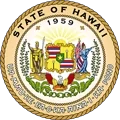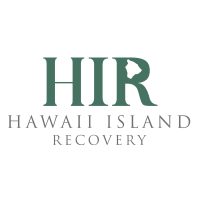Big Island Substance Abuse Council - Hilo High School
Drug Rehab Center in Hilo, Hawaii
Big Island Substance Abuse Council - Hilo High School is a CARF-accredited substance abuse treatment center in Hilo, Hawaii that offers prevention, advocacy, clinical treatment, and specialized therapies to individuals suffering from substance abuse and addiction, as well as access to support groups, peer recovery networks, and mental health care.
About This Hawaii Facility
Big Island Substance Abuse Council - Hilo High School, situated in Hilo, Hawaii, is an outpatient treatment facility dedicated to helping individuals overcome alcohol and substance addiction. Founded in 1964, the organization has been committed to inspiring and empowering individuals and families to reclaim their lives from the devastating effects of substance abuse.
• Comprehensive outpatient treatment program tailored to individual needs
• Culturally appropriate services aligned with the evolving behavioral health field
• Wide range of therapies, including cognitive behavioral therapy and motivational interviewing
• Access to support groups, peer recovery networks, and 12-step programs
Accredited by the Council on Accreditation for Rehabilitation Facilities (CARF) since 2005, Big Island Substance Abuse Council - Hilo High School is also a member of the Substance Abuse and Mental Health Services Administration (SAMHSA). The center has been recognized for its excellence by the National Association of Addiction Treatment Providers and the Hawaii Department of Health.
The facility treats a variety of substance abuse issues, offering a continuum of care that includes individual counseling, group therapy, and dual-diagnosis treatment. They provide assessment and referral services, education and prevention programs, aftercare, and relapse prevention to support individuals throughout their recovery journey.
Genders
Ages
Modality
Additional
Accreditations

CARF
The Commission on Accreditation of Rehabilitation Facilities (CARF) is a non-profit organization that specifically accredits rehab organizations. Founded in 1966, CARF's, mission is to help service providers like rehab facilities maintain high standards of care.
Conditions and Issues Treated
Recovering from any type of substance abuse is a long process, but it is one of the most worthwhile and life changing events any addicted person will ever go through. This is a combination of detoxing the body, rehabilitation, and recovery. There is also therapy, aftercare, and support during the entire process.
While substance abuse can take over a person’s life, it is something that can also be overcame by professionals at Big Island Substance Abuse Council - Hilo High School in Hilo, HI
With so many people struggling with opioid addiction, opioid addiction treatment is more critical than ever before. Patients often take opioids when they face a painful injury. When someone begins taking opioids such as Vicodin or oxycodone differently than how the medications were prescribed, this points to opioid addiction.
Stopping these types of medications abruptly is not safe. That is where opioid addiction treatment at Big Island Substance Abuse Council - Hilo High School in Hilo, HI comes in. Most opioid addiction treatment facilities start with detox and move to rehabilitation services while providing medical support during the process.
Getting over an opioid addiction takes time and determination, but with the right support and resources, those struggling with opioid addiction can recover and move forward with their lives.
An underlying cause often brings about addiction. Mental disorders can lie at the center, such as schizophrenia, bipolar disorder or anxiety disorder. As well as the cause of the addiction, a dual diagnosis by Big Island Substance Abuse Council - Hilo High School helps to treat the addiction. This ensures that after treatment is complete, the patient will not fall back on old practices.
Levels of Care Offered at Big Island Substance Abuse Council - Hilo High School
This center offers a variety of custom treatment tailored to individual recovery. Currently available are Aftercare Support, Drug Rehab, Dual-Diagnosis, Intensive Outpatient, Outpatient, with additional therapies available as listed below.
An intensive outpatient program is a good option for someone in Hawaii with a milder or less severe addiction. An IOP may involve daily meetings at a treatment facility, along with personal counseling and peer meetings. Some IOP programs offer half-day treatment, while others offer full-day programs. Big Island Substance Abuse Council - Hilo High School‘s IOP is customized per individual.
Outpatient treatment is treatment that occurs when a patient is not checked into a rehab facility. The patient may show up for therapy sessions, go through detox and engage in other therapies to help them recover. However, they will do so while they live at home in Hawaii.
Outpatient therapy provided by Big Island Substance Abuse Council - Hilo High School is usually recommended as a follow up to inpatient therapy. It helps patients adapt to their normal lives after treatment. In some cases, it can also be an alternative to inpatient treatment. People may choose this route if they are unable to leave their jobs, children or if they don’t have the money for inpatient treatment. However, inpatient treatment is the best way to recover from addiction.
Therapies & Programs
Individual professional counseling or individual therapy refers to the one-on-one interaction between a patient and his or her counselor. Individual therapy allows for more privacy, one that group interactions can’t provide. Therefore, it becomes easier for a person to unload and become more open to his or her counselor.
Another benefit of individual therapy at Big Island Substance Abuse Council - Hilo High School in Hilo, HI is that all sessions aim to speed up a single person’s progress. It makes it easier for the counselor and the patient to deal with the central issues, which are likely the culprits of substance addiction.
Once the roots of the problems are addressed, it becomes less challenging for a recovering patient to maintain sobriety and brush off temptations.
Families are not always as supportive as they could be, but by opting for family therapy, many recovering addicts are able to understand their addiction and get the support they need to get sober. These therapy sessions at Big Island Substance Abuse Council - Hilo High School in Hilo, HI involve all members of the family who play a role in the recovering person’s daily life. They work together to overcome past issues, avoid triggers, and remain strong and supportive of each other.
In group therapy, the patient undergoes sessions with other patients dealing with similar problems under the guidance of a trained counselor. The members of the group interact with each other and talk freely about their issues. The recovery of members of the group from the problems that they face gives the patients confidence that they can also overcome their addiction.
Group therapy at Big Island Substance Abuse Council - Hilo High School reduces the feeling of loneliness and improves the coping skills of the patients. Group therapy provides patients with continuous feedback from other members. The group dynamics ensure that members start having some structure and routine in their lives.
Cognitive behavioral therapy (CBT) is a way of addressing concerns through talking. Talking through issues can identify sources of discomfort or unhealthy thoughts. CBT is a healthy way Big Island Substance Abuse Council - Hilo High School addresses some behaviors which may be bringing unintended consequences in a persons life.
Payment Options Accepted
For specific insurance or payment methods please contact us.
Is your insurance accepted?
Ask an expert, call (888) 674-0062
Big Island Substance Abuse Council Associated Centers
Discover treatment facilities under the same provider.
- Big Island Substance Abuse Council - Kailua Kona in Kailua Kona, HI
- Big Island Substance Abuse Council - Ka Wahi Ola Hou in Hilo, HI
- Big Island Substance Abuse Council - Hilo in Hilo, HI
- Big Island Substance Abuse Council - Connections in Hilo, HI
- Big Island Substance Abuse Council - Laukona House in Hilo, HI
Learn More About Big Island Substance Abuse Council Centers
Additional Details
Specifics, location, and helpful extra information.
Hilo, Hawaii 96720 Phone Number(808) 969-9994 Meta DetailsUpdated April 15, 2024
Staff Verified
Patient Reviews
There are no reviews yet. Be the first one to write one.
Hilo, Hawaii Addiction Information
Hawaii has one of the highest rates of drug abuse in the nation. Methamphetamines and marijuana are the most common drugs involved in drug-related crimes in Hawaii. The state loses $500 million every year due to methamphetamine abuse, according to the Hawaii Meth Project. More than 1 million prescriptions for prescription drugs are given out every year.
Hawaii has one of the highest rates of drug abuse in the nation. According to the 2012 National Survey on Drug Use and Health, 1.9% of people 12 or older in Hawaii used methamphetamine in the past year. There were also 681,000 active marijuana users during that same period time. Some centers specialize in a specific type of treatment, such as 12-step programs or faith-based programs.
Treatment in Nearby Cities
- Kaneohe, HI (209.9 mi.)
- Lanai City, HI (141.6 mi.)
- Pahoa, HI (18.2 mi.)
- Pahala, HI (43.5 mi.)
- Waianae, HI (232.5 mi.)
Centers near Big Island Substance Abuse Council - Hilo High School
The facility name, logo and brand are the property and registered trademarks of Big Island Substance Abuse Council - Hilo High School, and are being used for identification and informational purposes only. Use of these names, logos and brands shall not imply endorsement. RehabNow.org is not affiliated with or sponsored by Big Island Substance Abuse Council - Hilo High School.









